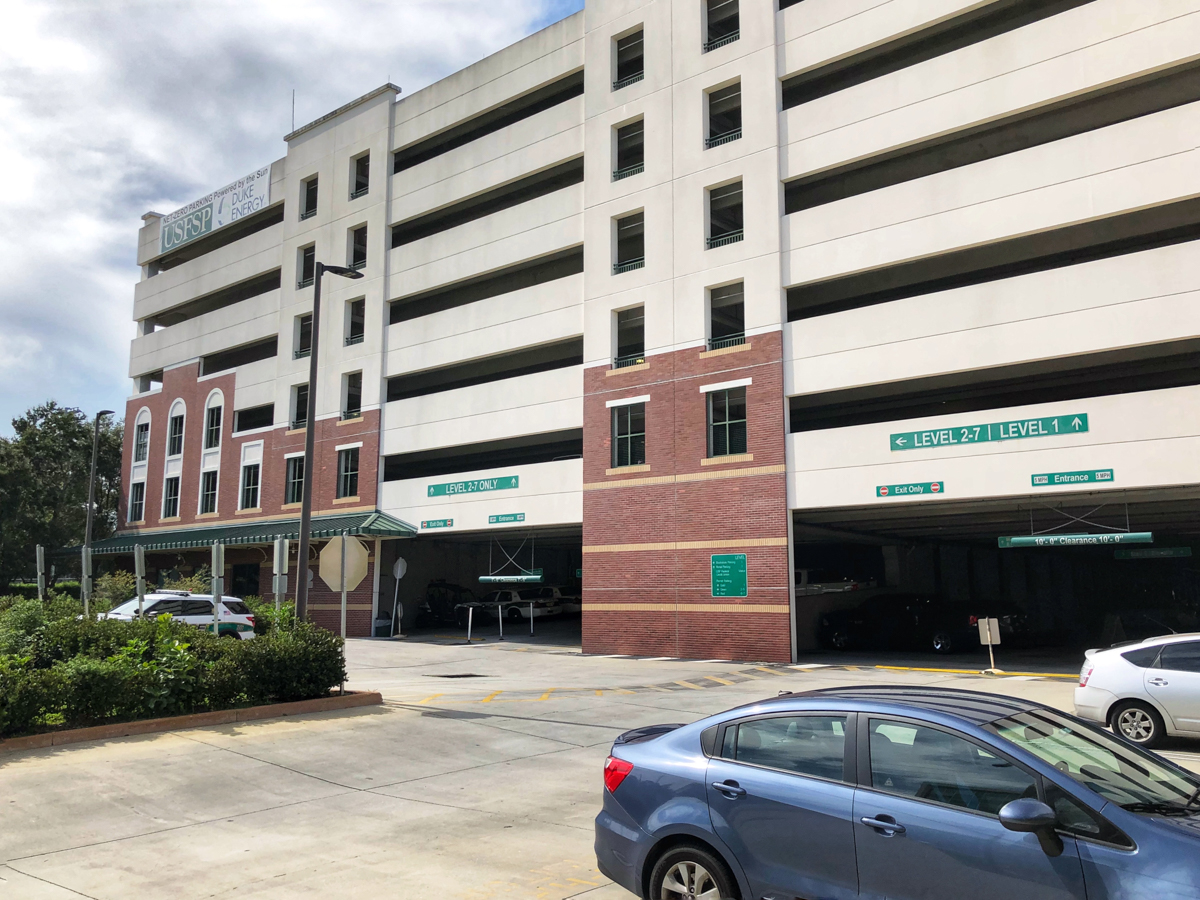USF St. Petersburg’s main parking space, the garage is usually crowded. Students find it hard to find spaces, navigate and avoid tickets, such as for having a tire touch the line. Martha Rhine | The Crow’s Nest
By Alyssa Harmon
Finding parking is hard enough, but when USF. St. Petersburg closed one of its parking lots during the first week of classes, it became even more difficult.
At 10:30 a.m. Aug. 22, the university sent out an email that said the parking lot near the soccer field would be closed for the rest of the day so faculty could set up for Rec Fest.
The elimination of a parking lot caused students to circle like vultures around every parking space as directed by the faculty, who were handing out maps in the parking garage.
Since most students were in class by that point, I knew the probability of finding a student and following them to their car wasn’t going to happen.
Eventually I found a parking spot, but it was nowhere near my class. I was 30 minutes late and I wasn’t the only one.
Unfortunately, this wasn’t the first time that the school closed a parking lot. In the spring, the university held the St. Petersburg Conference on World Affairs, which would surrender our paid parking spots to the public for three days.
Of course there wasn’t enough parking, so it also opened up the garage’s resident parking on levels six and seven. The school directed students, faculty and conference attendees to the other parking lots as well.
This happened again in fall 2017, when the school unexpectedly closed the parking lots near Harbor Hall on a Thursday.
When I drove to the entrance, an employee had me roll down my window and asked if I was a student. She then informed me that students and faculty weren’t allowed to park there that day. Instead, the parking lot was opened to the public for the science festival that wasn’t taking place until that weekend.
Parking has been an issue since I became a student, and for three years there has been no solution.
Telling students to “just leave earlier” to ensure they find a spot does not always work because some have jobs or other obligations that keep them from doing so. It shouldn’t be the student’s responsibility to fix a problem that the school created.
This parking problem not only frustrates students, but also affects their academics by causing them to be late to class.
A good place to start would be to actually give the students the spots they pay for and not offer them to the public for free. Maybe temporarily opening one small, dirt parking lot away from the center of campus isn’t a good solution.
This problem needs to be addressed because our school keeps growing, which means that we have more students with the same amount of parking spots.
For a $174 annual parking pass, students should at least be able to find a spot to park on their commuter campus.



